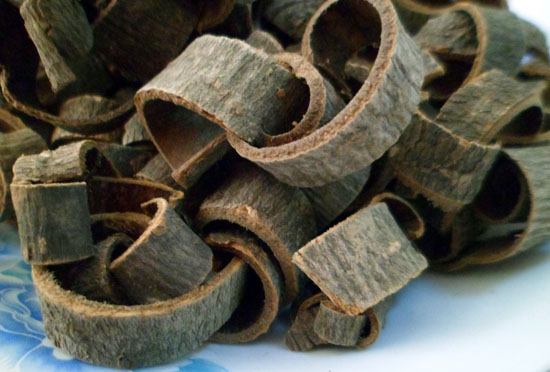Magnolia bark (Magnolia officinalis) is a traditional Chinese medicine used since 100 A.D. to support the body and nurture wellbeing and to treat a plethora of ailments. Magnolia bark has been used to treat menstrual cramps, abdominal pain, abdominal bloating and gas, nausea, and indigestion. The bark is also an ingredient in formulas used for treating coughs and Asthma. The bark is used internally in the treatment of abdominal distension, loss of appetite, gastro-enteritis, vomiting, Diarrhea, asthma and coughs with acute phlegm. The bark and flower buds of Magnolia officinalis have been used to treat coughs and colds and intestinal problems.
1. Weight loss
Magnolia bark is getting much press as a "cortisol", the stress hormone-lowering supplement. Cortisol has also been associated with weight gain (particularly fat in the abdominal area), sugar control problems, memory problems, and a host of other stress induced disorders.

2. Anxiety
In studies, honokiol was compared with diazepam (Valium), a well known pharmaceutical anxiolytic. Honokiol was found to be five times stronger than diazepam in reducing anxiety without the side effects of diazepam. While diazepam does reduce anxiety, it also induces muscle relaxation, an effect not shared by honokiol. It would seem that honokiol is less likely than diazepam to induce physical dependence, central nervous system depression, motor nerve disruption, or amnesia at doses eliciting the anxiolytic effect. Because honokiol reduces anxiety without disruption of motor activity, it is postulated that the mechanism of the anxiolytic effect of honokiol is at least partially different from that of diazepam.
3. Alzheimers Disease
Magnolia has several powerful effects on acetylcholine levels in the brain, offering potential benefits for victims of Alzheimer's Disease. Alzeimer's Disease is characterised by insufficient levels of acetylcholine, accompanied by the buildup of amyloid plaque in the brain, disrupting normal brain functioning. Two biphenolic compounds found in Magnolia, Honokiol and magnolol, increase choline acetyltransferase activity, inhibit acetylcholinesterase, promote potassium-induced acetylcholine release and exhibit neurotrophic function in in vitro studies. Choline acetyltransferase is an enzyme involved in the cellular synthesis of acetylcholine, an increase of which can up-regulate the production of acetylcholine necessary for proper brain function. Acetylcholinesterase is an enzyme that breaks down acetylcholine, the inhibition of which preserves available acetylcholine.
4. Asthma
Magnolol was found in studies to support the body's natural production of adrenal steroids (corticosteroids) which suppress inflammation. This anti-inflammatory effect is thought responsible for alleviating the allergic inflammatory response in cases of asthma. Increases in corticosteroids may be a concern for those wishing to use magnolia as a weight loss product, but in a patented product combining the herb with phellodendron this effect was reversed, resulting in corticosteroid reduction, and reduced cortisol-induced food cravings.

![Diseases, Symptoms, tcm, [tcmwindow.com]](/uploadFile/adImg/2015/11/11/f5cbfcc0-4df5-4646-9b9a-f316651a0199.jpg)





